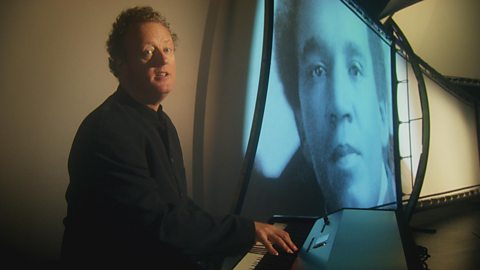In this short film Howard Goodall profiles Franz Liszt and developments in 19th century music, including his innovations with themes of death and destiny.
We see his long term impact on other composers such as Claude Debussy and Danny Elfman.
Includes performances of Liszt's Grand galop chromatique, Fountains of the Villa D'Este, Prometheus, Hunnenschlacht, and Debussy's Gardens in the rain.
This short film is from the BBC series, Howard Goodall's Story of Music.
Teacher Notes
Students could use this short film as part of their studies of romanticism and the history of western music.
Follow-on work could include tracking how Liszt's innovations, in particular his symphonic poems and programme music, influenced later composers such as Debussy, Tchaikovsky and Richard Strauss.
It may also provoke composition work based on an image, story or character.
Curriculum Notes
This short film will be useful for teaching music, particularly in the areas of music history, notation, composition, music theory and understanding styles.
More from Howard Goodall's Story of Music:
Notation and melodic movement. video
How do you write down a melody? In this short film Howard Goodall gives an introduction to early notation and how music was first written down.
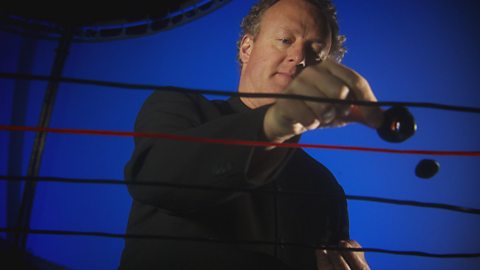
Harmony, intervals, triads and cadences. video
In this short film Howard Goodall looks at the late medieval period and the development of harmony by composers such as John Dunstaple.
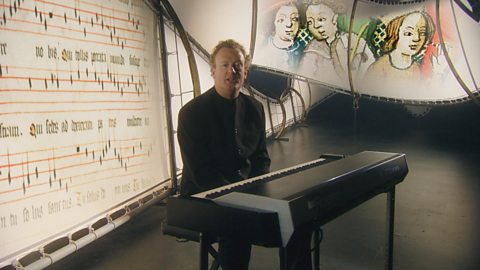
Harmony, dissonance and an introduction to opera. video
In this short film Howard Goodall looks at the importance of Claudio Monteverdi, the 16th century composer who introduced more emotive, dissonant harmonies.
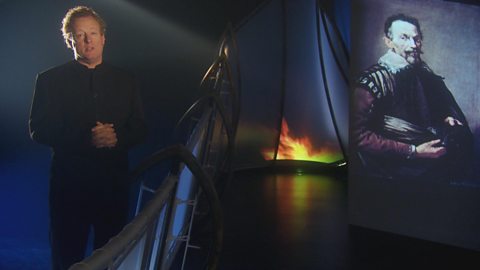
Key signatures, equal temperament and the 12-tone tuning system. video
In this short film Howard Goodall explains the origin of the 12-tone tuning system that has become the foundation of classical and popular western music.
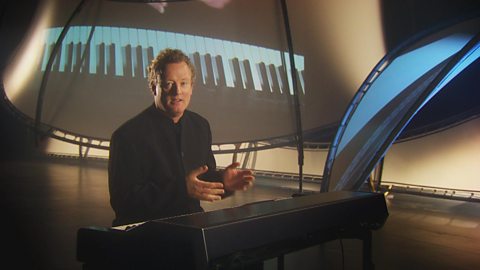
Handel, the pianoforte and oratorio. video
In this short film Howard Goodall explores 18th century music, the invention of the piano and the establishment of opera as a major art form.
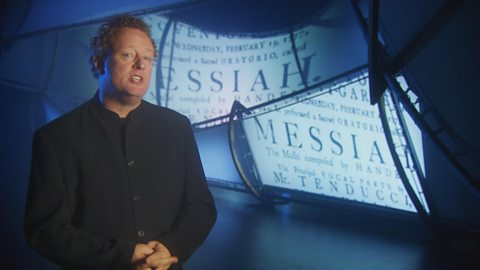
Mozart, melodic writing and the symphony. video
In this short film Howard Goodall analyses Wolfgang Amadeus Mozart's importance in musical history, exploring his symphonies and operas, and his relationship to his contemporaries, Haydn and Beethoven.
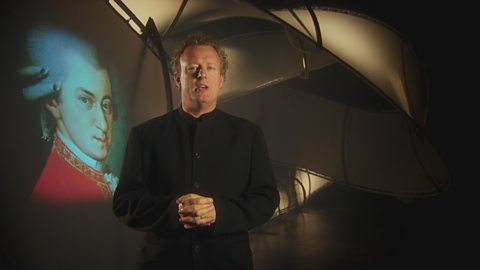
Haydn, symphonies and melodic writing. video
In this short film Howard Goodall analyses 18th century music, Joseph Haydn' impact on composition, and the rise of the symphony and opera as prominent musical forms.
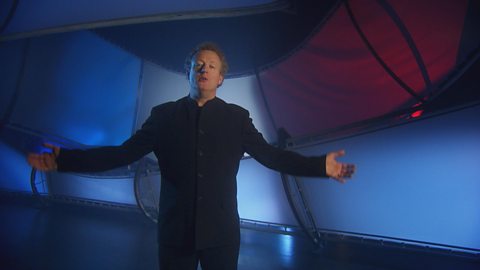
A profile of Beethoven. video
In this short film Howard Goodall offers a profile of Beethoven and his development from classical composer to romanticism.
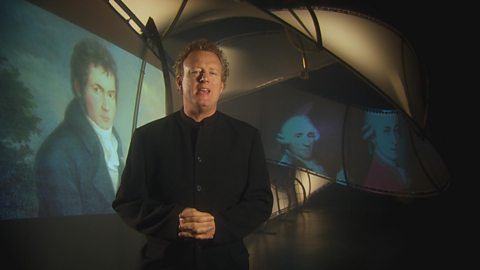
Saint-Saëns and developments in French composition. video
In this short film Howard Goodall asks how French composers changed the direction of music in the 19th century. Includes a focus on Erik Satie and Gabriel Fauré.
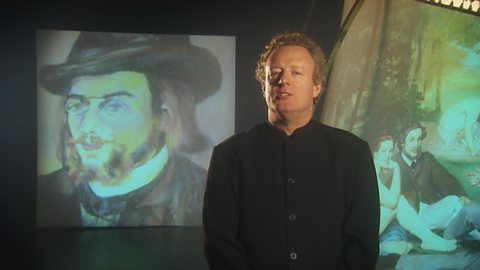
Debussy, world music and impressionism. video
In this short film Howard Goodall examines Claude Debussy and the transition away from traditional composition methods.
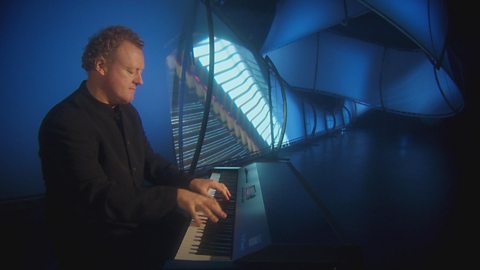
Shostakovich and the effects of Nazi rule on composers. video
In this short film Howard Goodall looks at how musicians such as Dmitri Shostakovich and Richard Strauss adapted to survive Hitler's Germany and Stalin's Soviet Union.

Minimalism and the advance of music technology. video
In this short film Howard Goodall explores the rise of modern popular music such as hip hop and looks at music technology and sampling.
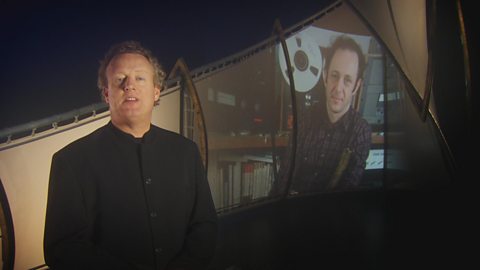
Stravinsky, Russian music and modernism. video
In this short film Howard Goodall finds out how Igor Stravinksy's spiky, aggressive, complicated music took the musical establishment by storm in the early 20th century.
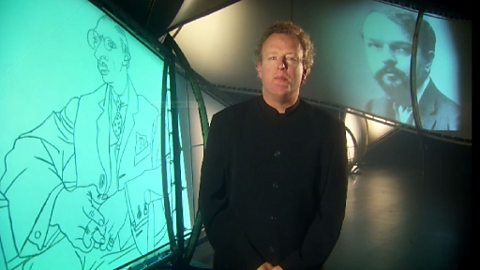
Blues and ragtime. video
In this short film Howard Goodall explores the origins of blues music and ragtime and looks at how the invention of recorded music popularised folk and spiritual African American music.
